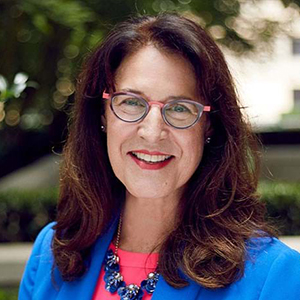
PRovoke 2018: Celebrating Purpose
Two weeks ago, I traveled to the PRovoke Global PR Summit, held this year at the famous Watergate Hotel in Washington, D.C. There I was, just steps away from the place that’s become shorthand for American democracy in crisis, at the tail end of an election season that’s demonstrated, all these years later, just how far we haven’t come. It felt a little strange, and even a little sad. How can it be that we’re still mired in all this vitriol, blockaded into one camp or the other as we scream past one another with our hands over our ears? How can it be that we’re moving backward, not forward? What will it take to shake us free from our past and into the future?
And so my trip to the Watergate got me thinking: about change, and purpose, and how we can use our voices to make the world a better place.
Like the Watergate Hotel itself, PRovoke is a great reminder of just how much the world needs what we communicators have to offer. We know this: when we do our jobs well, we do more than just present facts. We shed light, bring understanding, and create empathy — something that’s in woefully short supply these days.
During the summit, I had the great opportunity to share the stage with Elizabeth Owen, the head of global employee communications at Levi Strauss & Co. We quickly realized we have a lot in common: we both love coming to work at a place whose independence allows us to truly make a difference, and we share a core commitment to the transformative power of communications.
And it’s not just Elizabeth. Throughout the conference, I met dozens of public figures, media professionals, and brand communicators — all working hard to make the world a better, fairer, more understanding place. Together, we draw the maps that guide purpose-driven messages (and messengers) where they need to go. When we share stories, we change the world.
Here are just three inspiring examples of what I mean.
Media
Marty Baron, the executive editor of the Washington Post, talked about modernization, technology, and the battle against “fake news.” For the Post, Jeff Bezos’s ownership has been a great opportunity to be bold and experimental, to communicate the news to new audiences in new ways. For instance, Baron’s team is putting a lot of money, time, and brainpower into developing custom-built, proprietary tools and platforms that will help journalists do their jobs — and they’re working toward leasing these tools and platforms to other news organizations.
Sure, journalism is about competition, the race for a scoop or a source; but in the end, the work of sharing stories — telling truths — is more important than a byline or a Pulitzer. News organizations should all be on the same team, and the tools and tech the Post is working on will help make storytelling easier for everyone.
Government
Senator Mark Warner of Virginia joined us from across the Potomac to call on social-media giants to embrace data transparency: to make it easy for people to see the data social-media companies have — and sell — about them, for one thing. With regulation and accountability, Warner argued, the internet will be safer and more user-friendly, and the information we find there will be more reliable. That’s a win for all of us.
Warner also called out PR and marketing agencies, pointing to our role in disseminating “fake news.” “The amount of fraud in the digital advertising space is pretty remarkable,” he said. “We all need to think about our share of responsibility.”
Brands
By far the most inspirational presentation at the conference came from Indian transgender-rights activist Shree Gauri Sawant. She’s the first recipient of a grant from the Vicks #TouchofCare fund, which she’s used to build a home for the children of sex workers and other disadvantaged and ostracized kids. She’s also starred in a beautiful video and PR campaign that have not only touched the hearts of consumers — though they certainly have done that — but have actually made real, tangible change in the lives of the kids Sawant serves. It’s a perfect example of the kind of work we should all be doing, every day.
It’s not about what stories we can tell — it’s about what stories we should tell
What I said about tech companies during the launch of our Brands in Motion global study holds true for PR agencies as well. It’s not about what stories we can tell. It’s about what stories we should tell. Communications is an enormous responsibility, and that’s why I am so proud of our company and our clients. In the swirl that is our world, we unite around our purpose and we stand up to tell the truth.
At the Watergate, I felt a little dejected — but not discouraged. In the lead-up to this year’s election, we’ve seen the worst that we can be. In particular, we’ve seen the weight hateful stories and horrible lies can have, and the ways in which they can distort our sense of each other and our nation. But we’ve also seen the ways in which courageous truth-telling can lift that weight, clear the fog, and allow us to see one another for who we really are. Paul Holmes summed up the conference content as “basically only two threads: the goodness of purpose, and the evil of fake news.” It’s too easy to focus on the second part; from now on, I choose to focus on the first.
Finally, and most important: PLEASE VOTE today. Our future depends on it.
Read more posts from WE Global CEO and Founder Melissa Waggener Zorkin here.
The latest blogs from WE
R&D has a Crucial Role in Shaping Corporate Reputation
Holiday Shopping Recap: Key Insights From Our Consumer Team
The Future of Earned Storytelling


